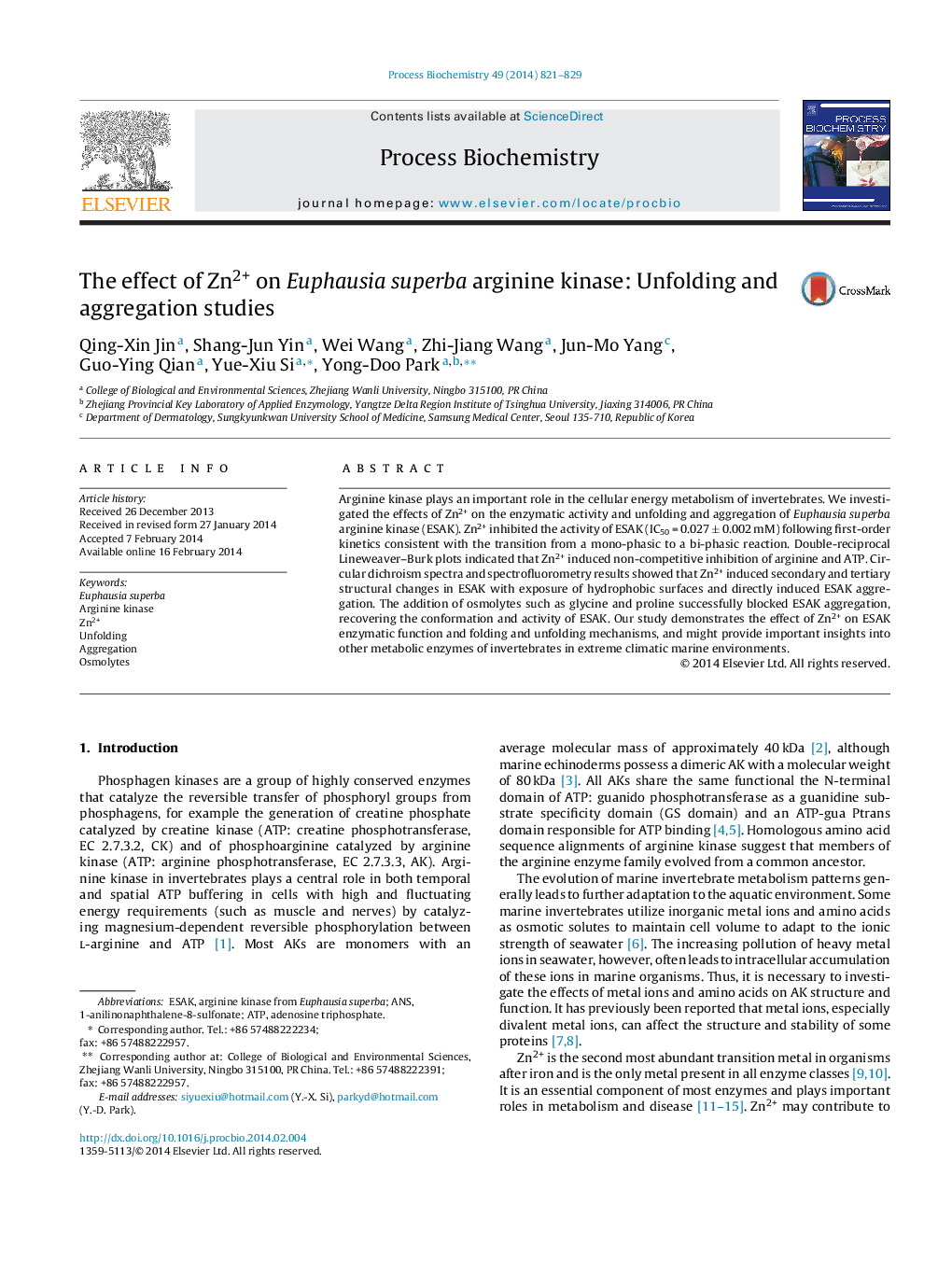| Article ID | Journal | Published Year | Pages | File Type |
|---|---|---|---|---|
| 34525 | Process Biochemistry | 2014 | 9 Pages |
•Arginine kinase (AK) folding mechanisms in the presence of Zn2+.•Zn2+-induced aggregation phenomenon of AK from the Antarctic krill (Euphausia superba).•Comparisons between conformational changes and catalytic functions of AK with Zn2+ binding.•Several osmolytes roles for preventing AK aggregation.
Arginine kinase plays an important role in the cellular energy metabolism of invertebrates. We investigated the effects of Zn2+ on the enzymatic activity and unfolding and aggregation of Euphausia superba arginine kinase (ESAK). Zn2+ inhibited the activity of ESAK (IC50 = 0.027 ± 0.002 mM) following first-order kinetics consistent with the transition from a mono-phasic to a bi-phasic reaction. Double-reciprocal Lineweaver–Burk plots indicated that Zn2+ induced non-competitive inhibition of arginine and ATP. Circular dichroism spectra and spectrofluorometry results showed that Zn2+ induced secondary and tertiary structural changes in ESAK with exposure of hydrophobic surfaces and directly induced ESAK aggregation. The addition of osmolytes such as glycine and proline successfully blocked ESAK aggregation, recovering the conformation and activity of ESAK. Our study demonstrates the effect of Zn2+ on ESAK enzymatic function and folding and unfolding mechanisms, and might provide important insights into other metabolic enzymes of invertebrates in extreme climatic marine environments.
